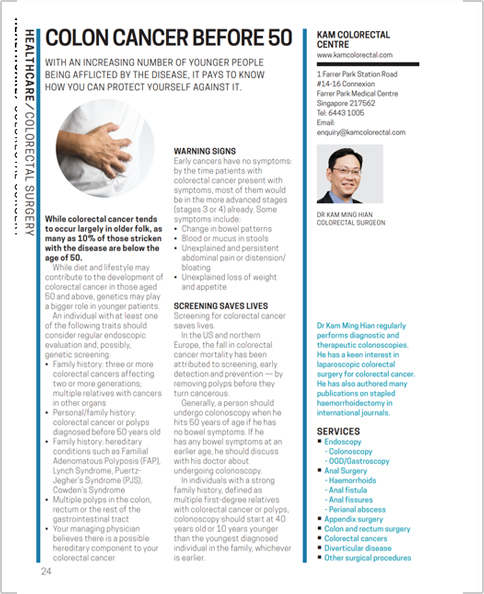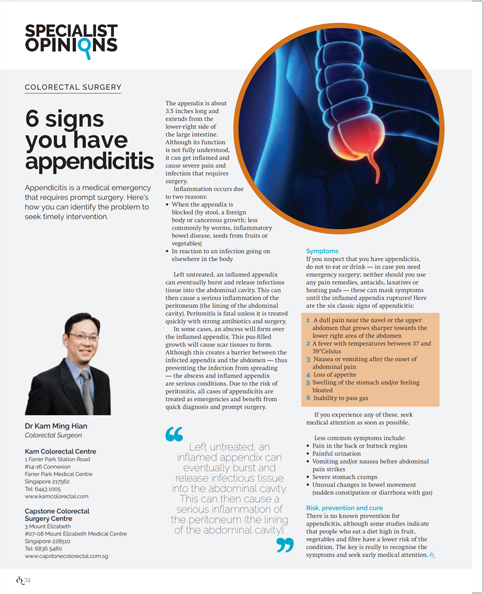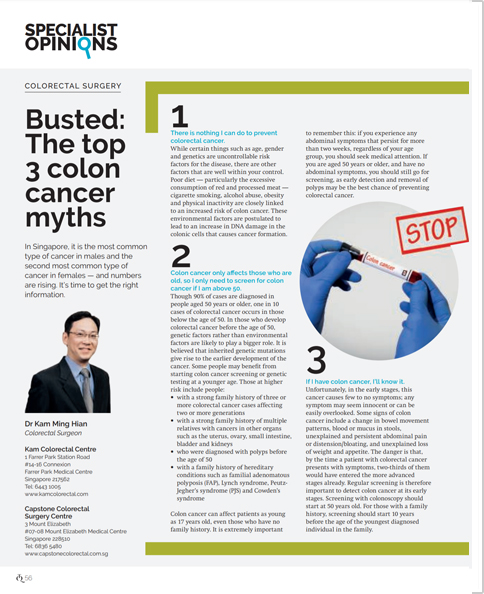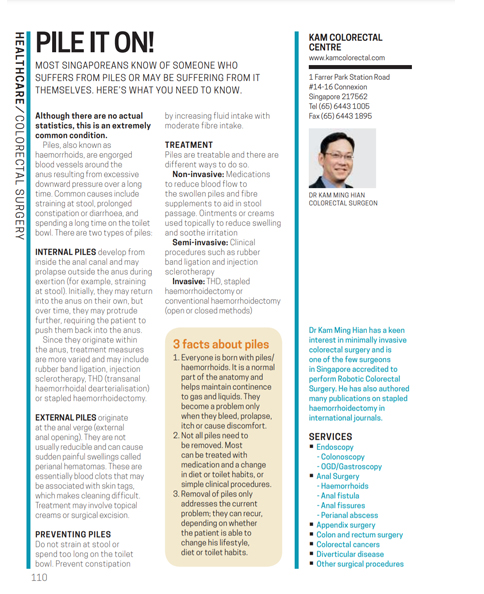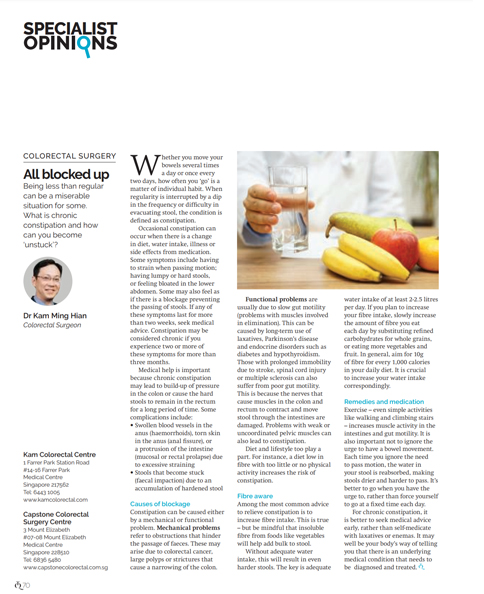
Piles Are A Pain
THE 4 DEGREES OF PILES
- First degree: bleeding fresh blood, painless
- Second degree: prolapsing piles that can spontaneously return into the anal canal, with or without bleeding
- Third degree: prolapsing piles but must be manually pushed back into the anal canal after bowel movements
- Fourth degree: when the piles are prolapsed and irreducible
NON-SURGICAL & SURGICAL
Non-surgical treatments usually consist of lifestyle changes and medication. Other treatments may include clinical procedures like injection sclerotherapy or rubber band ligation. These cause scarring of the tissue just above the piles, and will reduce blood low to the respective piles and “anchor” the piles back within the anal canal and reduce prolapse.
Surgical treatments are usually conducted in the operating theatres under general or regional anaesthesia. These include operations like Transanal Haemorrhoidal Dearterialisation, Stapled Haemorrhoidectomy and Conventional Haemorrhoidectomy (Open or Closed). These are usually performed as day surgery by a
piles surgeon
trained in the procedures, and patients can be discharged on the same day to recover in the comfort of their own homes.
HOW PREVENTABLE?
Good toilet habits go a long way, and these include preventing constipation by taking moderate amounts of ibre and drinking plenty of water as a way of life. Spending less time on the toilet and avoid straining at stool can also help to prevent the development of symptomatic piles.
WHO’S AT RISK?
Piles can develop in anyone. Those with poor toilet habits and have long-standing constipation are more prone to developing piles. Pregnancy can also contribute to the development of piles due to constipation and increasing intra-abdominal pressure from the developing baby
PILES: 3 MISCONCEPTIONS
Piles are unnatural growths
Piles or haemorrhoids are actually part of our anatomy. They help maintain liquid and gas continence by forming a “plug” to stop the gas and liquid from escaping at inopportune times. They only become a problem when there are symptoms such as bleeding, prolapse, perianal itch or pain.
Piles must be surgically removed
Not all piles need to be removed. There are many effective nonsurgical treatments for piles in the early stages including changes to the diet or toilet habits, as well as appropriate medication.
Rectal bleeding is caused by piles
Although bleeding is one of the commonest symptoms of piles, it is not true that rectal bleeding must be from piles. Bleeding can be a sign of other conditions within the colon, rectum and anus and should be investigated. Patients who experience rectal bleeding should consult with their doctor, who will perform a clinical examination and recommend a
colonoscopy
if needed.
![]()
20 Years of Colorectal Experience
![]()
Skilled in Minimally Invasive & Laparoscopic Techniques
![]()
Individualised & Cost Effective Treatment for Every Patient
![]()
Medisave and Insurance-Covered Treatment and Procedures
We are proud to provide patients with highly personalised and affordable colorectal treatments in Singapore. At Kam Colorectal Centre, we’ve got your colorectal health covered.
Call +65 6443 1005 or fill in the form below to book a detailed consultation with us.

